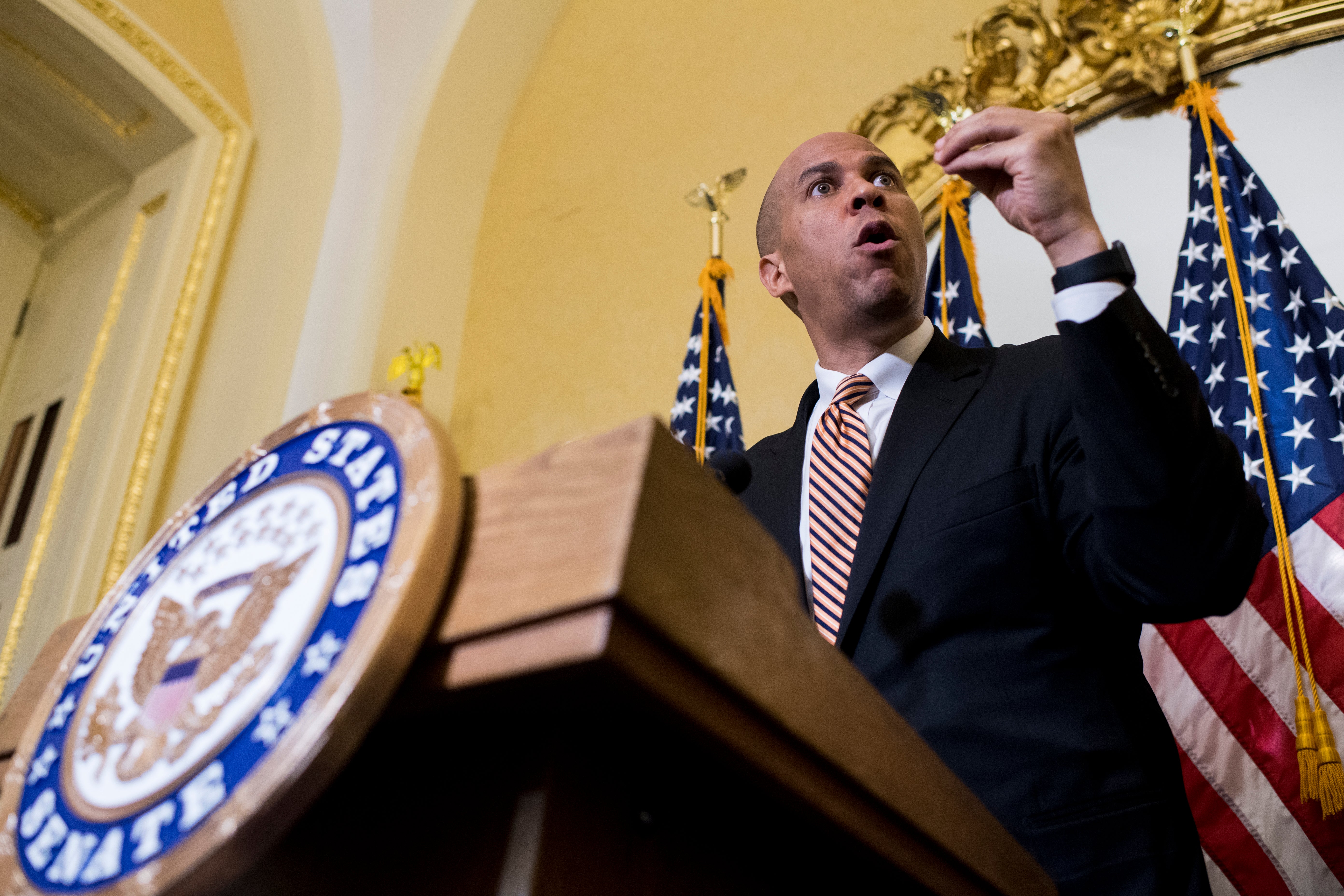
While the federal government has promised to roll back the Obama administration’s liberal marijuana policies, Senator Cory Booker has introduced a bill to strengthen them.
As states around the country have legalized marijuana, including California, Massachusetts, and Washington, Booker’s proposed legislation would make the drug legal federally.
The proposed Marijuana Justice Act is wide-ranging. It would expunge federal convictions for marijuana use and possession, entitle those imprisoned for marijuana offenses to a sentencing hearing, and allow those convicted to file a lawsuit if they were victims of the racially disparate imprisonment and arrest rates.
A Community Reinvestment Fund would also finance re-entry programs and other investments in communities most affected by the drug war that hit its stride in the Reagan era, and that has continued to decimate a disproportionate number of black and brown families.
Black men make up nearly 40 percent of the federal prison population. Nearly half of all those in federal prison are incarcerated for drug offenses. While convictions for marijuana possession and distribution are not the primary drug locking offenders up, easing marijuana restrictions could make a significant dent in reducing the federal prison population.
Marijuana arrests also trap many young men in the criminal justice system even if they are not incarcerated. According to the American Civil Liberties Unions, fifty-two percent of all drug arrests in 2010 were for marijuana, and Blacks are nearly four times more likely than Whites to be arrested for the substance.
Booker’s bill is the first to comprehensively address the issue.
However, it is unlikely to pass in a Republican-controlled Congress and after Jeff Sessions, the head of the Department of Justice, has fashioned himself as being tough on drugs.
Still, state and city governments continue to grapple with ways to ease marijuana restrictions, particularly given the high costs of maintaining prisons full of drug offenders.
New York is making it easier to buy medical marijuana, and several dozen states now allow some medical use.
